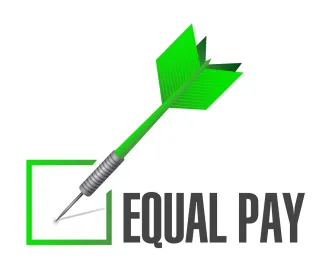The Act also prohibits pay inquiries in the hiring process and limits restrictions on employee compensation discussions.
Less than two months after the passage of the Labor Transformation and Flexibility Act that significantly reformed the labor landscape in Puerto Rico, on March 8, 2017, Governor Ricardo Rosselló signed the Puerto Rico Equal Pay Act (PREPA or the Act) designed to eradicate gender-based pay disparities on the island, including in the private sector.
Like the federal Equal Pay Act (EPA), PREPA prohibits gender discrimination in compensation. In addition, following the trend in some states, the Act also imposes new prohibitions on an employer’s ability to inquire about a job applicant’s prior salary data, limits restrictions on employee wage discussions and inquiries, and provides for related civil damages and penalties.
PREPA took effect immediately upon its signing, but employers will not be held liable for violations of the Act until a year after its enactment to allow them to establish self-evaluation programs and corrective measures described in the Act.
PREPA Prohibits Pay Discrimination
Similar to the EPA, PREPA requires employers with employees in Puerto Rico to provide equal pay to employees of all sexes performing “comparable work” unless a pay disparity is due to
-
a bona fide seniority or merit-based compensation system;
-
a compensation system based on the quality or quantity of production, sales, or profits;
-
education, training, or experience that is reasonably related to the specific work in question; or
-
some other reasonable factor other than sex.
PREPA defines “comparable work” as work involving substantially similar functions, effort, skill, and responsibility that is performed under similar conditions. PREPA makes clear that a job title or description will not be the determining factor to establish whether work is comparable. An employer that violates the Act’s equal pay provisions may not correct the pay disparity by reducing the wages of the higher-paid employee to match the wages of the lower-paid employee. Finally, PREPA does not require proof that the pay disparity is based on discriminatory intent.
PREPA Prohibits Pay Inquiries in the Hiring Process and Limits Restrictions on Employee Compensation Discussions
PREPA prohibits employers from asking a job applicant or the applicant’s current or former employer about the applicant’s current or past compensation rate, subject to the following exceptions:
-
If a job applicant voluntarily discloses his or her current or past wages, the potential employer may confirm or allow the applicant to confirm the information.
-
The potential employer may inquire into or confirm an applicant’s current or past wages if it negotiated the compensation rate with and made an offer of employment to the applicant.
PREPA also prohibits employers from requiring, as a condition of employment, that an employee or job applicant refrain from asking for, discussing, requesting, or disclosing information about his or her compensation or the compensation of other employees performing comparable work. However, employers may prohibit employees in human resources, supervisory, or managerial positions, or positions permitting access to employee compensation information, from disclosing such information without the prior written consent of the employee whose information is sought or requested, unless the information is in a public record.
Additionally, PREPA prohibits employers from terminating, threatening, discriminating against, or retaliating against an employee with respect to the terms, conditions, compensation, location, benefits, or privileges of his or her employment because the employee
-
disclosed his or her compensation information or asked about or discussed other employees’ compensation;
-
objected to an act or practice made illegal under the Act;
-
made a complaint or filed a claim under the Act in any forum; or
-
offered or attempted to offer, verbally or in writing, any testimony or information as part of an investigation against the employer for violating the Act.
Notwithstanding these provisions, PREPA specifies that, in this context, it does not require employers to disclose an employee’s compensation information to another employee or a third party.
Enforcement and Penalties
PREPA provides for a civil cause of action against employers for violations of the Act. Employees may recover the amount of wages due plus an additional penalty in an equal amount, as well as costs, reasonable attorney fees, and expenses. Additionally, an employer that dismisses, threatens, or discriminates or retaliates against an employee in violation of the Act will be liable for twice the amount of damages that such violation causes the employee.
Where an employee receives compensation for violations of PREPA, the wages (but not the penalty) will be credited to any other compensation awarded for similar violations of other employment discrimination laws.
In addition to filing suit, aggrieved employees may also file complaints with the secretary of the Puerto Rico Department of Labor and Human Resources (Department of Labor), who may investigate and adjudicate claims of alleged violations of PREPA. The secretary of the Department of Labor may also initiate investigations and inspections on its own and may adjudicate claims under the Act. Additionally, the secretary may sue on behalf of one or more similarly situated employees or applicants for amounts owed under the Act, and employees or applicants with an interest in the action may intervene (as the secretary may intervene in all actions that such employees or applicants bring under the Act). The Puerto Rico Women’s Advocate (Procuradora de la Mujer) may also refer cases to the secretary for investigation and may take appropriate enforcement actions, including the imposition of administrative fines, upon receiving a violation finding from the secretary.
The Act Encourages Employer Self-Evaluation Programs
The Act provides that an employer will not be required to pay the additional double damages penalty for a wage disparity in violation of PREPA (but will still be required to pay the wages due) if the employer proves that within the year prior to the wage disparity claim it evaluated its compensation practices in good faith and made reasonable progress towards eliminating any gender-based pay disparities.
PREPA directs the secretary of the Department of Labor to prepare and publish uniform guidelines for such employer self-evaluation programs. However, the Act warns that simply complying with the secretary’s guidelines will not preclude the imposition of the Act’s additional penalty for violations of PREPA. Rather, the employer must have instituted an evaluation program that is reasonably detailed and comprehensive and establishes clear short-term goals in light of the employer’s size and economic resources.
The Act prohibits documents relating to an employer’s self-evaluation from being admitted in gender-based wage discrimination proceedings to prove violations of the Act or any other gender-based wage discrimination claim with respect to events that occurred
-
before completion of the evaluation,
-
within six months after completion of the evaluation, or
-
within one year after completion of the evaluation, if the employer demonstrates that, in good faith, it had developed and begun to execute a plan to resolve gender-based pay disparities.
PREPA specifies that no negative inference will be applied against an employer that has not established or completed a self-evaluation program.
Next Steps for Employers
Employers in Puerto Rico should immediately revise their employment application materials to remove any wage history questions and train their recruiting personnel to ensure that no improper wage history inquiries are made during the application process. Employers should also revise existing handbooks and policies to
-
prohibit sex-based pay discrepancies for comparable work;
-
ensure that any provisions concerning employee wage inquiries or discussions comply with PREPA; and
-
prohibit retaliation against employees who take actions consistent with PREPA or seek to enforce or assist in its enforcement.



 />i
/>i
